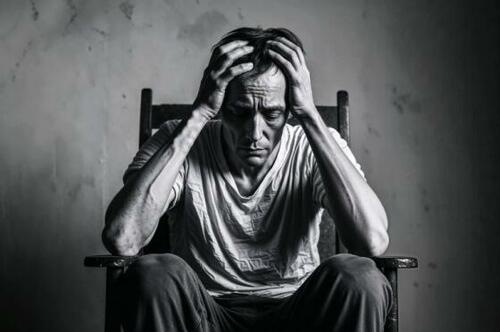
Home Alone: social isolation.
We live in a society where a significant chunk of the population feels painfully alone much of the time. Society is becoming more delusional and dangerous leading to mental health problems. Social isolation is a growing issue in society, as the advancement of technology has made it easier for individuals to connect virtually, but harder for them to form real, meaningful relationships. We exist in a society where a significant portion of our interactions take place online, through social media platforms and messaging apps. While this may seem like a convenient way to stay connected with others, it has also led to feelings of loneliness and isolation for many people. It is important to recognize the impact that social isolation can have on an individual’s mental health and overall well-being.
One of the reasons why social isolation has become more prevalent in today’s society is because of the pressure to always be connected and available. With the rise of smartphones and constant access to the internet, individuals are expected to respond to messages and notifications immediately, leading to a lack of true engagement with those around them. This constant need to be plugged in can lead to feelings of overwhelm and isolation, as individuals may struggle to find a balance between their online and offline lives.
Additionally, social isolation can be exacerbated by societal norms and expectations. In a culture that prioritizes individualism and self-reliance, it can be difficult for individuals to reach out for help or support when they are feeling lonely or disconnected. This can create a vicious cycle of isolation, as individuals may feel ashamed or embarrassed to admit that they are struggling with feelings of loneliness. It is important for society to shift its perspective on social connections and encourage individuals to prioritize their relationships and seek help when needed.
Furthermore, social isolation can have a detrimental impact on an individual’s mental health. Research has shown that prolonged periods of isolation can lead to increased levels of stress, anxiety, and depression. When individuals lack meaningful social connections, they may struggle to cope with life’s challenges and may feel a sense of hopelessness or despair. It is crucial for individuals to prioritize their mental health and seek support from friends, family, or mental health professionals if they are feeling isolated or alone.
In order to combat social isolation, it is important for individuals to make an effort to cultivate meaningful relationships and connections with others. This may involve reaching out to friends or family members, joining social groups or clubs, or volunteering in the community. By fostering a sense of belonging and support, individuals can reduce feelings of loneliness and isolation and improve their overall well-being. It is also important for society to recognize the impact of social isolation and work towards creating a culture that values authentic, meaningful connections over superficial online interactions.
In conclusion, social isolation is a significant issue in today’s society, as individuals are increasingly disconnected from one another despite the prevalence of technology facilitating communication. It is important for individuals to prioritize their relationships and mental health, and seek support when struggling with feelings of loneliness or isolation. By fostering meaningful connections and reaching out for help when needed, individuals can combat social isolation and improve their overall well-being. Society must also shift its perspective on social connections and encourage individuals to prioritize authentic relationships over superficial online interactions. Ultimately, by acknowledging the impact of social isolation and working towards creating a culture that values true connection, we can create a more connected and empathetic society for all.
